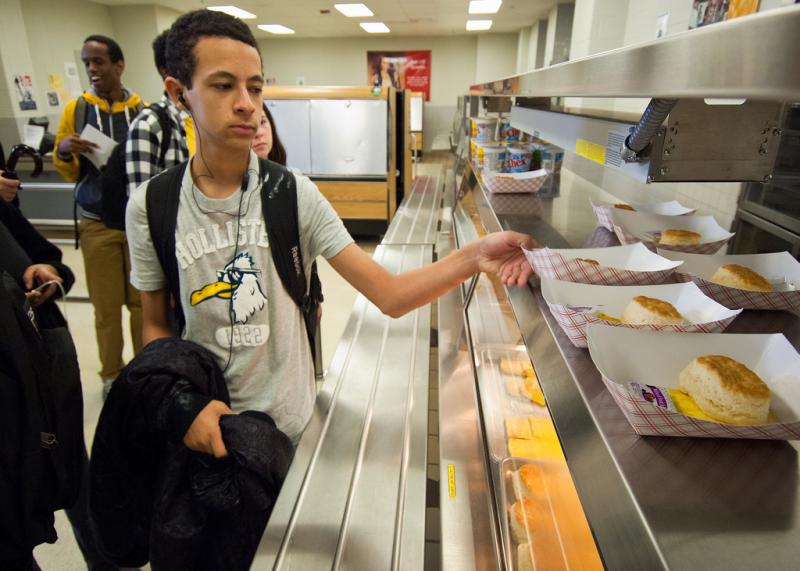Life threatening allergies policy suggests 'peanut table' for local schools
Peanuts may soon be sent to sit in the corner at Old Rochester Regional schools.
By the end of the month, ORR Superintendent Doug White hopes to have a new policy in place for kids with life threatening allergies.
If triggered, a child with severe asthma or allergies to foods like peanuts could go into anaphylaxis, an extreme and potentially deadly allergic reaction.
According to the Food and Anaphylaxis Network, more than 15 percent of kids with allergies have a reaction while they’re at school.
Nurses across the ORR district know of 63 children with life threatening allergies, and if recent studies are any indication, the numbers are likely to rise.
A study by the Center for Disease Control and Prevention found that the prevalence of food allergies among children 18 and under rose by 18 percent from 1997 to 2007.
Putting a policy and procedures in place that would be used across the district could mean the difference between life and death for some children.
Heidi Dubreuil and her husband have pushed for the policy since their son Benjamin entered Rochester Memorial School last year.
Keeping her son away from peanuts, tree nuts, milk and eggs means Dubreuil is always on “high alert,” she said.
Dubreuil worked with the school nurse, Benjamin’s teachers and bus driver, to create a plan to keep her son as safe as possible.
“My personal experience has been that they’ve been very receptive. They’re willing to learn and collaborate. There have been some bumps along the way, but we’ve always been making forward process,” she said.
Currently, policies exist in all of the public schools in Marion, Mattapoisett and Rochester, but the district’s policy subcommittee has been writing a Life Threatening Allergy Policy to systemize the approach to the issue.
The committee aims to have the policy ready for a vote by the next Joint School Committee meeting on October 25.
The subcommittee looked at the guidelines used by nearby schools and collaborated with parents to create a policy that would protect students, while leaving flexibility for kids without allergies.
Education is a key component of the policy. Faculty and staff will receive training on allergies, including how to administer an Epipen, a device used to stop a severe allergic reaction using an injection of epinephrine.
The training may also benefit kids who are as yet undiagnosed.
According to one study by the American Academy of Pediatrics, 20 to 25 percent of epinephrine administrations in schools nationally were on children who didn’t know they had an allergy.
The policy will also discourage kids from sharing food, beverages and utensils to prevent cross-contamination.
“There are always people who don’t understand, because they aren’t educated on food allergies, how a simple little cross-contamination could come to ending a child’s life,” said Meagan Bennett, whose son Cameron entered Rochester Memorial’s kindergarten class this year with Epipens packed.
The new procedures also include a “peanut table” for each cafeteria that would keep allergens confined, rather than banning them from the school.
“I’d rather work with people and if there is a concern, then we need to continue to educate and bring that forward,” he said, adding that providing a safe, fair education for all students was the ultimate goal.
Dubreuil said that was her goal as well.
“The two most important things for us and for most parents is you want to keep kids safe. You don’t want your kid marginalized from other kids,” she said.
Once the policy is set, White and members of the subcommittee said they expect changes will need to be made as everyone learns how best to keep students safe.
“We won’t just put this on the shelf,” said Christine Winters, a member of the Marion School Committee. “We’re open if the policy, for whatever reason, doesn’t seem to be working.”















